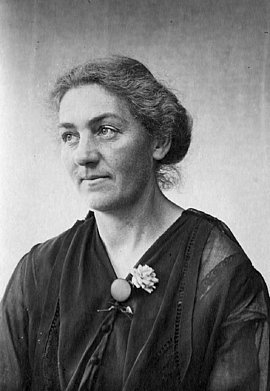German Resistance Memorial Center Biographie
Elisabeth Schiemann
Elisabeth Schiemann grew up in an academic family in Berlin. She trained as a teacher until she was one of the first women admitted to study sciences at the Berlin University at the age of 27. She wrote her doctoral thesis on plant genetics in 1912 and went on to work as an assistant at the Genetics Institute at Berlin Agricultural College. In 1924 she qualified to teach at university level and worked as an assistant professor. When the National Socialists took power, Elisabeth Schiemann was teaching as an associate professor. She joined the Confessional Church in 1934, rejecting there and in public the National Socialists’ pseudo-scientific “racial theory” and refusing to apply biological laws of heredity to human beings. In 1940 her teaching permission was withdrawn due to “political unreliability.” From 1943 she supported two Christian women of Jewish origins who were living in hiding. As the only German expert on the history of cultivated plants, she was appointed department head of the Kaiser Wilhelm Institute for Cultivated Plant Research in Vienna in 1943. After 1945 she played an important role in renewing the sciences in Germany.


